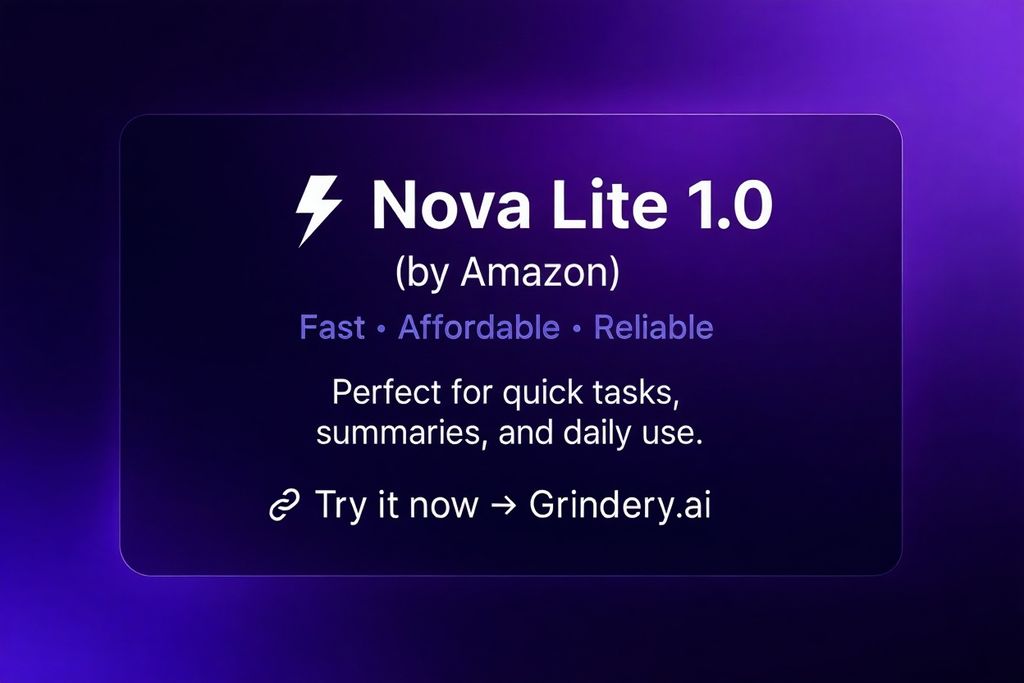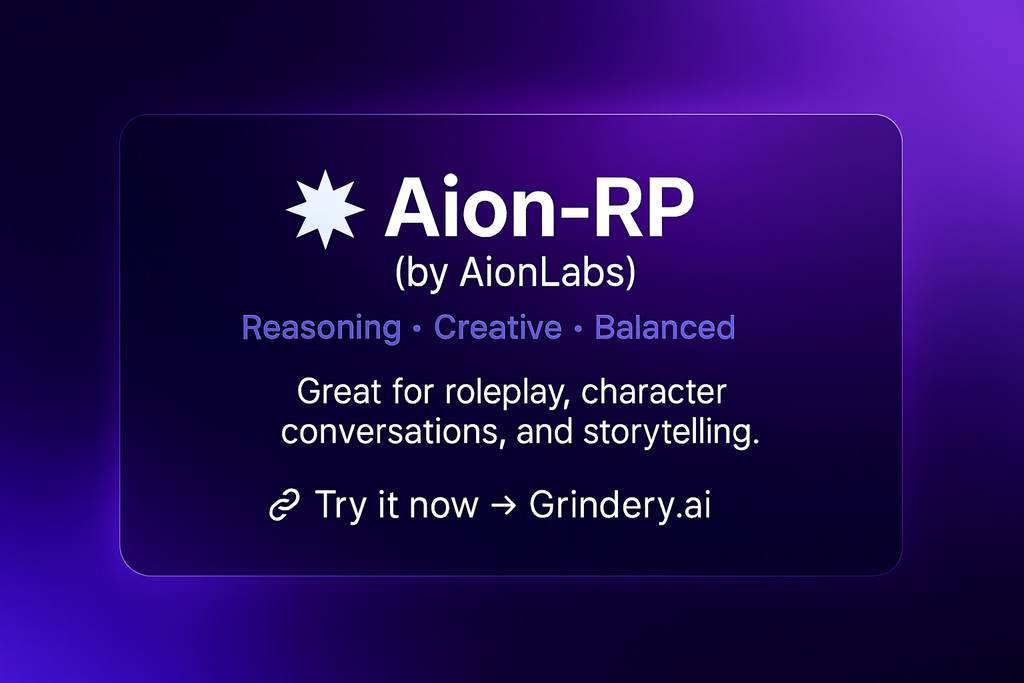Grindery joined Binance Labs's incubation program in 2022 with the mission and vision to make web3 easier. Back then, we first launched what we called the Zapier for web3 — a technology stack that seamlessly connected smart contracts with web2 technologies, and with a heavy focus on DAOs.
At the time, we recognized the shift in the market toward an AI-powered future. We saw how AI would empower messaging, clients and platforms, including Telegram. And with the emergence of account abstraction, we integrated our technology into Telegram in the form of a smart wallet mini app that 3.5 million started using over a 18-month period.
A month ago, we launched GX — Grindery's universal gas and governance token. But, as we see it, for Grindery users and GX holders, this is just the beginning of something much bigger.
The future of agentic AI
We believe that agentic AI will dominate the future, especially on the internet. The reason is very simple — AI agents are going to create a new layer between the large scale LLMs and the consumer in a very similar way to how apps have created a layer between users/consumers and internet-based services at large.
But it's still early. This layer that makes using AI agents really easy and seamless has yet to be built out. We believe that this is a tremendous opportunity for developers and builders to get in the game early and create new applications for users.
Building out the agentic layer of the internet is going to accelerate the impact, usability and productivity output of AI tremendously.
For investors, it's also an opportunity to get in early.
Our vision for agent creators
Agent creators should be able to create new specialized AI agents using any technology, any LLM, on any stack, with any framework. They should not be limited to a low-code GPT builder or locked into a specific agent framework by one of the major developers and vendors, with a specific database or underlying technology. The ability to be tech/platform-agnostic will give developers the freedom to build the best products for actual users.
Second, we believe that developers should be able to deploy their applications — their agents— on any relevant platform, such as messengers and social media apps. So if you want to build for Telegram, build bots for Telegram, if you want to build for the web, build for the web. Do you want to build your own mobile app? Build your own mobile app. You want to integrate it with WhatsApp, put it on WhatsApp. Or you can use decentralized protocols like XMTP and make it available to a series of clients.
All of that should be possible. The tech stack and platform used should be the choice of the creator. And they should not be locked into a walled garden by any of the platforms.
And then, for developers, there is of course the really important question of monetization. We believe that the emerging agentic layer needs an active ecosystem and economy to reach its full potential. This means we want agent builders — regardless of whether they build with or without code, if they build on OpenAI or Anthropic, or some other framework — to be able to monetize their work and sustainably deliver it to end users — real people who can use AI agents to make their lives easier.
Introducing Aventino
Enter Aventino. This is what we have been building behind the scenes — a platform for developers to build and monetize any kind of agentic AI application on any platform.
Aventino is an infrastructure layer that provides smart wallets for AI agents, allowing agents themselves to send and receive crypto, interact with blockchain protocols, and operate independently. These wallets are self-custodial and permissionless, meaning no third parties control them.
A foundational part of this idea is that AI agentic apps, unlike traditional apps, can use natural language to interact and work with each other to get things done for users At the same time, they can monetize the functional interactions between them.
Binance's CZ said recently: "While crypto is the currency for AI, not every agent needs its own token." And while we fully agree with that statement, we also believe that the ability of an agent to be governed by a token provides a tremendous opportunity for community building around a particular agent.
Ultimately, agents are as good as their creators. If agent creators can give their users a voice, the ability to vote and provide feedback on the development of that particular agent, it means creators have more direct input to what users actually need and want from their apps. This approach is a proven concept in the open source and web3 community at large. And it's something that we want to encourage and take advantage of because it is a type of feedback and participation that's really only possible and scalable with crypto and web3.
For this reason we are introducing optional token issuance for every agent. It will allow agents and their creators to raise money, generate liquidity and create a powerful community around their product.
Grindery’s smart wallet platform
Aventino currently operates on top of the Grindery smart wallet platform. Why?
First of all, we need to remember the core focus and effect of crypto and blockchain technology is to make markets better and more efficient.
Any market — financial markets, tokenized markets for real estate, copyrights and art markets. The same is true for the agentic layer.
But what does that mean?
“A wallet of one’s own”
As Carra Wu of a16z wrote in the firm’s 2025 predictions for crypto: "an AI needs a wallet of one's own to act agentically." We firmly agree. And there are many ways of providing said wallet.
When we're talking about automated, machine entities that have the capacity to make financial transactions, Externally Owned Accounts (EOA) valid wallets with passphrases and private keys are suboptimal and provide serious security concerns.
Looking further, we see that the core solution is to achieve full, permissionless account abstraction. This is something we already do at Grindery. It lets you set rules and scopes at a granular level, meaning you can grant agents the right to interact and transact.
Grindery is building such a wallet with the ERC-4337 Ethereum standard for account abstraction. Unlike most wallets, we rely on a token economy, rather than operating a wallet as a service model. That means we make things a lot simpler, a lot more open and we make it free in terms of use as well as free in terms of integration and extension.
What this means for agent creators
First of all, we want to make it easy for creators to be able to launch simple bots and simple agents. I've done this recently with my son. You can launch a Telegram bot for NFT creation or generating images for Roblox games in less than 15 minutes. It's very similar to something like custom GPT.
After launching a simple agent for the web or on Telegram, we want creators to be able to put it on any platform. So we'll place the agent inside WhatsApp or Facebook or in any platform they like.
Then we want to allow them to monetize their bot. We're building systems that allow creators to start charging right away within specific clients, where the end user can pay with Apple Pay or Google Pay, or credit card or, of course, crypto directly via whatever app or platform that the bot is available on.
We are also an educational resource. We want to connect developers to the makers of the underlying AI technologies and frameworks, as well as the clients and protocols, and help them to get the best out of these tools and platforms.
Ultimately, we are providing a community that gives developers access to the future of AI, joining like minded people who want to build — and use — the next generation of AI agents.
How we fit into the bigger picture
Now, how does this compare to the wider AI ecosystem, in its current form? Who do we compete with?
Obviously, we are not competing with the LLM giants such as OpenAI, Anthropic or DeepSeek. Their focus is the large language models, and whatever models will come after that.
What we’re building sits on top of that layer.
Do we compete with agent frameworks from these massive vendors that are currently launched, and that will emerge? No, we don't.
Grindery’s Aventino works in tandem with these technologies. So if you want to build agents with the OpenAI agent framework via Aventino, you're welcome to.
What about crypto-powered agent frameworks like Virtuals? In some ways, yes. However, again, we are not providing a specific framework, but instead the web3 infrastructure — the wallets — for those autonomous agents to interact.
I believe the best way to imagine what we're doing is to look at the case of custom GPTs. Users can create OpenAI-based custom GPTs in a few minutes, specifying information sources and prompts.
However, platforms like OpenAI, without exception, are all built on closed proprietary frameworks, meaning the agent you build on any given framework isn’t interoperable — you can only build it on that particular system.
Integration with messaging clients on the front end is also limited by the platform. And lastly, AI giants like OpenAI have very limited monetization opportunities and options for developers.
These limiting factors are what we’re changing with Aventino. We see a future of interoperable, web3-native AI agents.
End users
More developers building AI agents across more diverse technologies will result in more and better agents. The agentic layer will evolve faster and produce more value, both for creators and users.
More platforms, more messaging channels, also means that users can access them wherever they want. Are you a Telegram fan? Use Telegram. You prefer WhatsApp? No problem. Providing people with platform choice democratizes access.
There are millions of unbanked people in the world who don't have access to Apple Pay or can’t pay for ChatGPT. Now, they will be able to access the world’s most powerful AI models and agents with just a smartphone and crypto.
Some users want to be more deeply involved and have a say in how a particular agent functions — beyond simply using the bot to accomplish something. That’s where tokenization of AI agents comes in. Ultimately, users can become a co-creators, co-owners of the agents that they use on a day-to-day basis.
Because these are web3-native AI agents we’re talking about, the agents themselves can use crypto — they can trade for you. These agents will create the foundation for the next generation of automated crypto and DeFi apps.
The $GX token
Now what does all this mean for GX token holders specifically? For GX holders, Aventino — and the emergence of the agentic AI layer it will help facilitate — means we are introducing a whole new area of utility and use cases for GX.
So while GX’s primary function today is for gas payments and, eventually, governance, the introduction of the agentic layer will add additional utility for the token. For example, in order to launch and incubate these agents, creators will need a certain amount of GX to create the agent and deploy in on a bonding curve, similarly to how Virtuals agents are deployed.
Partnership opportunities
We’re looking for trusted partners to help us build out the permissionless payments layer for autonomous AI agents.
The types of partners we’re looking for include:
- Blockchains protocols looking to be in the AI/agentic space.
- Messaging protocols that want to go beyond human-based messaging and enter the agentic world.
- Messaging clients that are using those protocols.
- Of course, wallets. Our technology will be embeddable into crypto wallets and will allow users to manage their agent-specific governance tokens.
- Emerging LLMs that are more specialized and looking for more traction.
- No- and low- code tools to accelerate the development of AI agents and the larger frameworks behind them.
If any of the above sound like you, please reach out to us at
What's coming next
We’re already building Aventino and more updates will be coming soon.
We’ve already launched an idea marketplace — a forum where our community is already providing ideas for agents they would like to see built. Have any idea for an agent? We welcome you to join the conversation.
We're speaking to developers in the AI space that are passionate about building out this emerging industry. They can sometimes be developers with code. They can come from the no-code space. They can even come from spaces where they bring specific domain knowledge about something, like sports or health or travel, to actually design valuable experiences.
The next four to eight weeks will be a critical phase for us as we fully shift into gear to focus fully on building and launching Aventino.
One of our biggest challenges right now is understanding what everyone wants — what people want do (how can AI agents improve their everyday lives?), what AI developers want to build, and how we can best facilitate everyone achieving their goals in tandem.
Our north star: crypto is the currency of AI. And we are hear to build the infrastructure that will make that statement a reality.
Thanks for reading!
Tim Delhaes
Co-founder & CEO, Grindery


